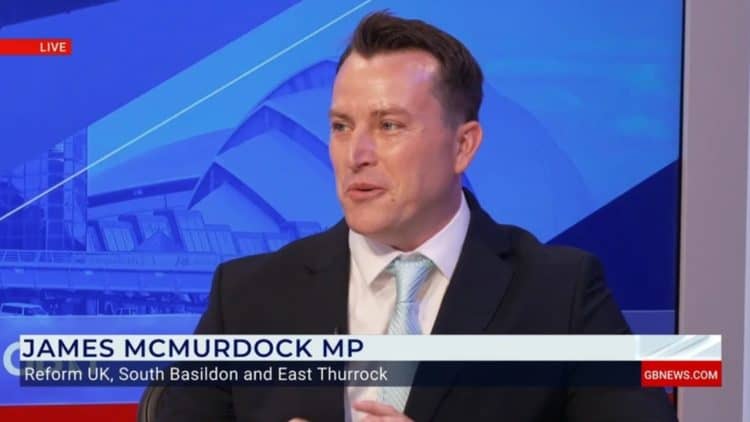James McMurdock, the Reform MP for South Basildon and East Thurrock, faced awkward questions from Sky News this weekend after being spotted at the party’s East of England conference. The politician, who has been dogged by controversy, was confronted about his past—specifically, his 2006 conviction for assaulting his then-girlfriend outside a nightclub.
Reform UK: Courting Attention and Controversy
Reform UK has made waves recently, thanks in part to high-profile support from Elon Musk, who has amplified the party’s talking points on X (formerly Twitter). The party has wasted no time kicking off the year with back-to-back conferences, offering its small group of MPs ample opportunities to speak.
Yet, curiously absent from the schedule was James McMurdock. Despite being an MP, McMurdock wasn’t slated to speak at the East of England conference, and party officials initially claimed he wouldn’t be attending. However, his presence at the event raised eyebrows—and questions.
The Scandal That Won’t Go Away
McMurdock’s past has cast a long shadow over his political career. In 2006, he was jailed for repeatedly kicking his then-girlfriend during a drunken altercation outside a nightclub. The conviction wasn’t disclosed when he ran for office, only coming to light last July.
When the revelation emerged, McMurdock dismissed the incident as a “teenage indiscretion,” a term that has sparked widespread criticism. The MP was 22 at the time of the assault—not exactly the age most would associate with teenage mistakes.
A Lack of Apology
When Sky News confronted McMurdock at the conference, asking whether he regretted downplaying the assault as a “teenage indiscretion,” the MP doubled down. He refused to apologise for the term, insisting he hadn’t lied or changed his story.
McMurdock’s refusal to backtrack has done little to quell the controversy surrounding him, leaving questions about his place within a party eager to present itself as a credible alternative to mainstream politics.
You may also like: Farage talks big on child abuse—just not in Parliament





